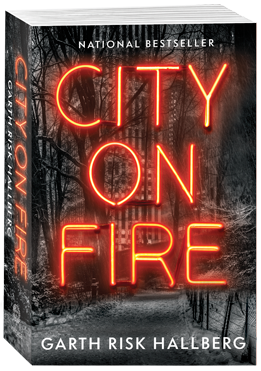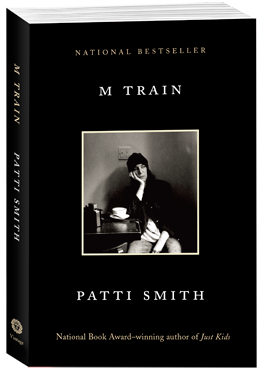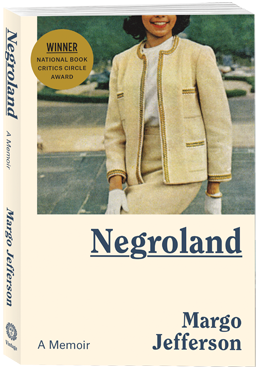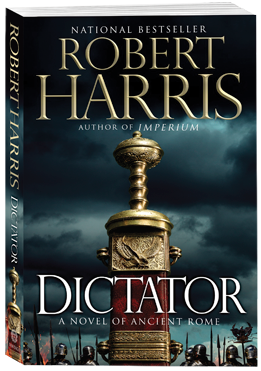- Home •
- Books by Category •
- Imprints •
- News •
- Videos •
- Media Center •
- Reading Group Center
STUNNING and POWERFUL FALL READING

 “As close to a great American novel as this century has produced.” ―Stephen King
“As close to a great American novel as this century has produced.” ―Stephen King
NATIONAL BESTSELLER
A Best Book of the Year The New York Times, Los Angeles Times, NPR, and more
New York City, 1976. Meet Regan and William Hamilton-Sweeney, estranged heirs to one of the city’s great fortunes; Keith and Mercer, the men who, for better or worse, love them; Charlie and Samantha, two suburban teenagers seduced by downtown’s punk scene; an obsessive magazine reporter and his idealistic neighbor—and the detective trying to figure out what any of them have to do with a shooting in Central Park on New Year’s Eve.
The mystery, as it reverberates through families, friendships, and the corridors of power, will open up even the loneliest-seeming corners of the crowded city. And when the blackout of July 13, 1977, plunges this world into darkness, each of these lives will be changed forever. City on Fire is an unforgettable novel about love and betrayal and forgiveness, about art and truth and rock ’n’ roll: about what people need from each other in order to live—and about what makes the living worth doing in the first place.

 “This book is brilliant. A poetic, energetic search for the secret links between life and art—and coffee.” —Henning Mankell
“This book is brilliant. A poetic, energetic search for the secret links between life and art—and coffee.” —Henning Mankell
NATIONAL BESTSELLER
From the National Book Award–winning author of Just Kids: an unforgettable odyssey of a legendary artist, told through the cafés and haunts she has worked in around the world. It is a book Patti Smith has described as “a roadmap to my life.”
M Train begins in the tiny Greenwich Village café where Smith goes every morning for black coffee, ruminates on the world as it is and the world as it was, and writes in her notebook. Through prose that shifts fluidly between dreams and reality, past and present, we travel to Frida Kahlo’s Casa Azul in Mexico; to the fertile moon terrain of Iceland; to a ramshackle seaside bungalow in New York’s Far Rockaway that Smith acquires just before Hurricane Sandy hits; to the West 4th Street subway station, filled with the sounds of the Velvet Underground after the death of Lou Reed; and to the graves of Genet, Plath, Rimbaud, and Mishima.
Woven throughout are reflections on the writer’s craft and on artistic creation. Here, too, are singular memories of Smith’s life in Michigan and the irremediable loss of her husband, Fred Sonic Smith.
Braiding despair with hope and consolation, illustrated with her signature Polaroids, M Train is a meditation on travel, detective shows, literature, and coffee. It is a powerful, deeply moving book by one of the most remarkable multiplatform artists at work today.

 “Brave…. Revelatory…. Recall[s] a number of America’s greatest thinkers on race.” —The New York Times Book Review
“Brave…. Revelatory…. Recall[s] a number of America’s greatest thinkers on race.” —The New York Times Book Review
Winner of the National Book Critics Circle Award
A Best Book of the Year The New York Times, Los Angeles Times, Oprah.com, and more
Pulitzer Prize–winning cultural critic Margo Jefferson was born in 1947 into upper-crust black Chicago. Her father was head of pediatrics at Provident Hospital, while her mother was a socialite. In these pages, Jefferson takes us into this insular and discerning society: “I call it Negroland,” she writes, “because I still find ‘Negro’ a word of wonders, glorious and terrible.”
Negroland’s pedigree dates back generations, having originated with antebellum free blacks who made their fortunes among the plantations of the South. It evolved into a world of exclusive sororities, fraternities, networks, and clubs—a world in which skin color and hair texture were relentlessly evaluated alongside scholarly and professional achievements, where the Talented Tenth positioned themselves as a third race between whites and “the masses of Negros,” and where the motto was “Achievement. Invulnerability. Comportment.” At once incendiary and icy, mischievous and provocative, celebratory and elegiac, Negroland is a landmark work on privilege, discrimination, and the fallacy of post-racial America.

 “Splendid…. Witty.” —Chicago Tribune
“Splendid…. Witty.” —Chicago Tribune
NATIONAL BESTSELLER
A Best Book of the Year The Guardian, BBC History Magazine, The Sunday Times (London)
At the age of forty-eight, Cicero—the greatest orator of his time—is in exile, his power sacrificed on the altar of his principles. The only way to return to Rome is to pledge his support to a charismatic and dangerous enemy: Julius Caesar. Harnessing his political cunning, unrivalled intellect, and the sheer brilliance of his words, Cicero fights his way back to prominence. Yet no public figure is completely safeguarded against the unscrupulous ambition of others.
Riveting and tumultuous, Dictator encompasses the most epic events in ancient history, including the collapse of the Roman Republic, the murder of Pompey, and the assassination of Caesar. But its central question is a timeless one: how to keep political freedom unsullied by personal gain, vested interests, and the corrosive effects of ceaseless foreign wars. In Robert Harris’s indelible portrait, Cicero is a deeply fascinating hero for his own time and for ours.

 “Captivating…. Thrilling…. Margaret Atwood [is] a living legend.” —The New York Times Book Review
“Captivating…. Thrilling…. Margaret Atwood [is] a living legend.” —The New York Times Book Review
NATIONAL BESTSELLER
A Boston Globe Best Book of the Year
Stan and Charmaine, a young urban couple, have been hit by job loss and bankruptcy in the midst of a nationwide economic collapse. Forced to live in their third-hand Honda, where they are vulnerable to roving gangs, they think the gated community of Consilience may be the answer to their prayers. If they sign a life contract, they’ll get a job and a lovely house . . . for six months out of the year. On alternating months, residents must leave their homes and serve as inmates in the Positron prison system. At first, this seems worth it: they will have a roof over their heads and food on the table. But when a series of troubling events unfolds, Positron begins to look less like a prayer answered and more like a chilling prophecy fulfilled. The Heart Goes Last is a vivid, urgent vision of development and decay, freedom and surveillance, struggle and hope—and the timeless workings of the human heart.